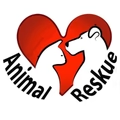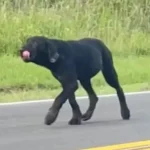In Overland Park, Kansas, a gentle, curly-haired poodle named Ivy has become the center of both admiration and controversy. Ivy is no ordinary dog—she’s a trained therapy animal who brought calm and comfort to nervous dental patients. But after a recent ruling from the Kansas Dental Board, her presence in the dental office where she once thrived is now in jeopardy.
Ivy’s Role in the Dental Office
Dr. Kory Kirkegaard, a dedicated dentist and Ivy’s proud owner, introduced her into his practice with one goal in mind: to make dental appointments less stressful for patients. Soft-footed and hypoallergenic, Ivy often laid at patients’ feet or greeted them with a gentle nuzzle, especially those nervous about treatment. Though she was only there during off-hours for most of her time, her presence proved to be incredibly effective and became an emotional fixture at the clinic.
“We miss her,” Dr. Kirkegaard said emotionally. “Wow. I am just emotionally maxed out, I think.“
Despite her value, the Kansas Dental Board ruled Ivy could no longer be present in the clinic during regular business hours due to unspecified sanitation concerns. Dr. Kirkegaard emphasized that Ivy is bathed one to two times per week and follows a strict hygiene protocol, adding, “She just finds her way into a moment where it makes sense for her to be there.”
Clashing with State Requirements
In April 2024, the Kansas Dental Board issued a letter stating that no pets—including dogs—are permitted within dental offices. However, Ivy isn’t just a pet; she is a certified professional therapy dog. Her qualifications, training, and handler information are clearly displayed in the clinic, aligning with Kansas legal definitions.
According to Kansas law, a “professional therapy dog” is one that has been trained, tested, and intentionally selected to provide care in structured environments. Ivy passed a full inspection by the dental board in June 2024, which found the office compliant with all hygiene and safety regulations.
Despite the positive inspection, a new letter in August 2024 claimed the office failed to meet state regulations under a different interpretation. In response, Dr. Kirkegaard requested a formal meeting, which took place in April 2025. During the meeting, he presented what he called “mountains of scientific evidence” about the benefits of therapy animals, along with letters from grateful patients. Still, the board upheld its decision to ban Ivy from the premises.
Voices of Support and Disappointment
Dr. Kirkegaard noted that at least 20 dental offices across Kansas utilize therapy dogs in everyday operations. He believes it’s unfair that his practice is being targeted and said the board’s interpretation lacks consistency and transparency.
- Ivy never approaches patients unless permission is given. Clear consent protocols are in place, ensuring she only interacts with those who welcome her presence.
- She meets all physical and regulatory standards. The office has adhered to strict cleanliness practices supported even by inspections.
- Therapy dogs are common in dental practices nationwide. Many states and clinics support their involvement as emotional support tools.
For Dr. Kirkegaard, Ivy is part of his mission to offer compassionate care. “It’s a very common thing throughout the country for dogs to be in a dental therapy setting,” he explained. “The close-minded viewpoints and very opinion-based discussion that we had in our meeting on Friday was very frustrating and a little discouraging to hear from a board of peers.”
Believing in Ivy’s impactful role, Dr. Kirkegaard has now hired legal representation in hopes of overturning the board’s decision. His ultimate wish is for Ivy to return to the office, where her calming paws can make dental care just a little less scary for those who need it most.










Facebook Comments